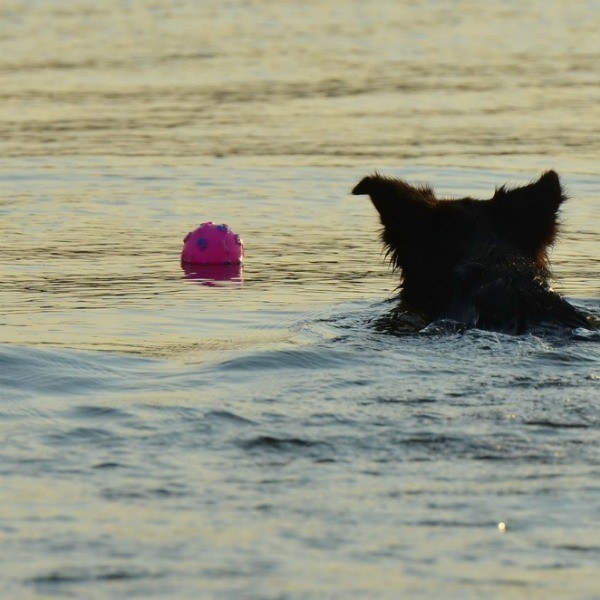Rare Leptospirosis Outbreak in Arizona
Share

 We’ve just learned that there is an outbreak of leptospirosis among dogs in the Fountain Hills, Arizona area. This highly contagious disease is transmitted through urine and contaminated water, which makes it especially dangerous for dog parks.
We’ve just learned that there is an outbreak of leptospirosis among dogs in the Fountain Hills, Arizona area. This highly contagious disease is transmitted through urine and contaminated water, which makes it especially dangerous for dog parks.
“The Department of Public Health has recorded 40-plus dogs tested positive since January 2016,” Dr. Sarah Bashaw with El Dorado Animal Hospital in Fountain Hills reported to AZ Family. “A lot of the cases started in Scottsdale, but they have been reporting cases as far west as Avondale, some cases in Gilbert, and we’ve had the first cases I know of in Fountain Hills.”
Leptospirosis is a bacterial infection caused by the bacterium, Leptospira. This is also a zoonotic disease, meaning it can be transmitted to humans.
Many animals (wild and domestic) can carry this bacteria, including cattle, pigs, dogs, horses, rodents and wild animals. In most cases, animals may show no symptoms of the disease, but occasionally it can result in shaking, tremors, and more.
[load_module id=”595″] [heading style=”2″ color=”#996633″ style_color=”#996633″]What to Do Right Now[/heading]Talk to your veterinarian to determine if you need to vaccinate for Leptospirosis. Since it’s such a rare occurrence in Arizona, there is usually no need to carry the vaccine, but with the recent outbreak, more veterinarians are ordering it in.
[heading style=”2″ color=”#996633″ style_color=”#996633″]How Leptospirosis Spreads[/heading]
This bacterium is spread through water and soil, and can remain there alive for months. Infected animals can continue to excrete the bacteria anywhere from months to years. According to the CDC, humans can become infected through:
- Contact with urine (or other body fluids, except saliva) from infected animals.
- Contact with water, soil, or food contaminated with the urine of infected animals.
The bacteria can enter the body through skin or mucous membranes (eyes, nose, or mouth), especially if the skin is broken from a cut or scratch.
Drinking contaminated water can also cause infection. Outbreaks of leptospirosis are usually caused by exposure to contaminated water, such as floodwaters. Person to person transmission is rare.

[heading style=”2″ color=”#996633″ style_color=”#996633″]Human Symptoms To Watch For[/heading]
The CDC reports that symptoms of Leptospirosis can be wide-ranging, and you may have no symptoms at all, but it may include some that could be mistaken for other diseases, including:
- High fever
- Headache
- Chills
- Muscle aches
- Vomiting
- Jaundice (yellow skin and eyes)
- Red eyes
- Abdominal pain
- Diarrhea
- Rash
The time between exposure and becoming sick is generally between 2 days to 4 weeks.
Leptospirosis may occur in two phases:
- Phase 1: Patients may (but not always) experience fever, chills, headache, muscle aches, vomiting, or diarrhea. The patient may recover for a time but become ill again.
- Phase 2: If a second phase occurs, it is more severe; the person may have kidney or liver failure or meningitis. This phase is also called Weil’s disease.
The illness lasts from a few days to 3 weeks or longer. Without treatment, recovery may take several months.
[load_module id=”593″][heading style=”2″ color=”#996633″ style_color=”#996633″]About Your Cat[/heading]
Yes, your outdoor cat is also susceptible to this disease. If your cats are not already indoor-only, it’s time to consider making them so. If you feel your cat may have been exposed to this disease, please contact your veterinarian to discuss how you can treat and protect yourself as well as other members of the family. This disease is treatable, but it relies on fast, accurate diagnosis.

[heading style=”2″ color=”#996633″ style_color=”#996633″]Prevention in Humans[/heading]
Recommendations for avoiding risks of contamination include:
- Vaccination of pets
- Protective footwear around places with contaminated water
- Gloves and protective wear when cleaning in areas where infected pets may be.
- Avoid swimming, wading or drinking water that may be contaminated.
[heading style=”2″ color=”#996633″ style_color=”#996633″]What To Do If You Suspect Your Pets Were Exposed to Leptospirosis[/heading]
If your pet has been confirmed by your veterinarian as having leptospirosis, you should take appropriate precautions, but remember that normal daily activities with them will not put you at risk.
- Avoid contact with urine, blood and tissue during infection
- Don’t help your pet deliver newborns – instead, take them into the veterinarian.
If you develop fever, muscle aches, headaches or others, let your doctor know immediately. Leptospirosis is completely treatable with antibiotics once diagnosed and there are several tests available to diagnose. Letting it go may cause serious, irreparable damage to your organs.
Representatives from Maricopa County Department of Public Health are now in Fountain Hills working with the Center for Disease Control to study this outbreak. If you live in or around the area, please ask your veterinarian about vaccination protocols.
[load_module id=”582″]










